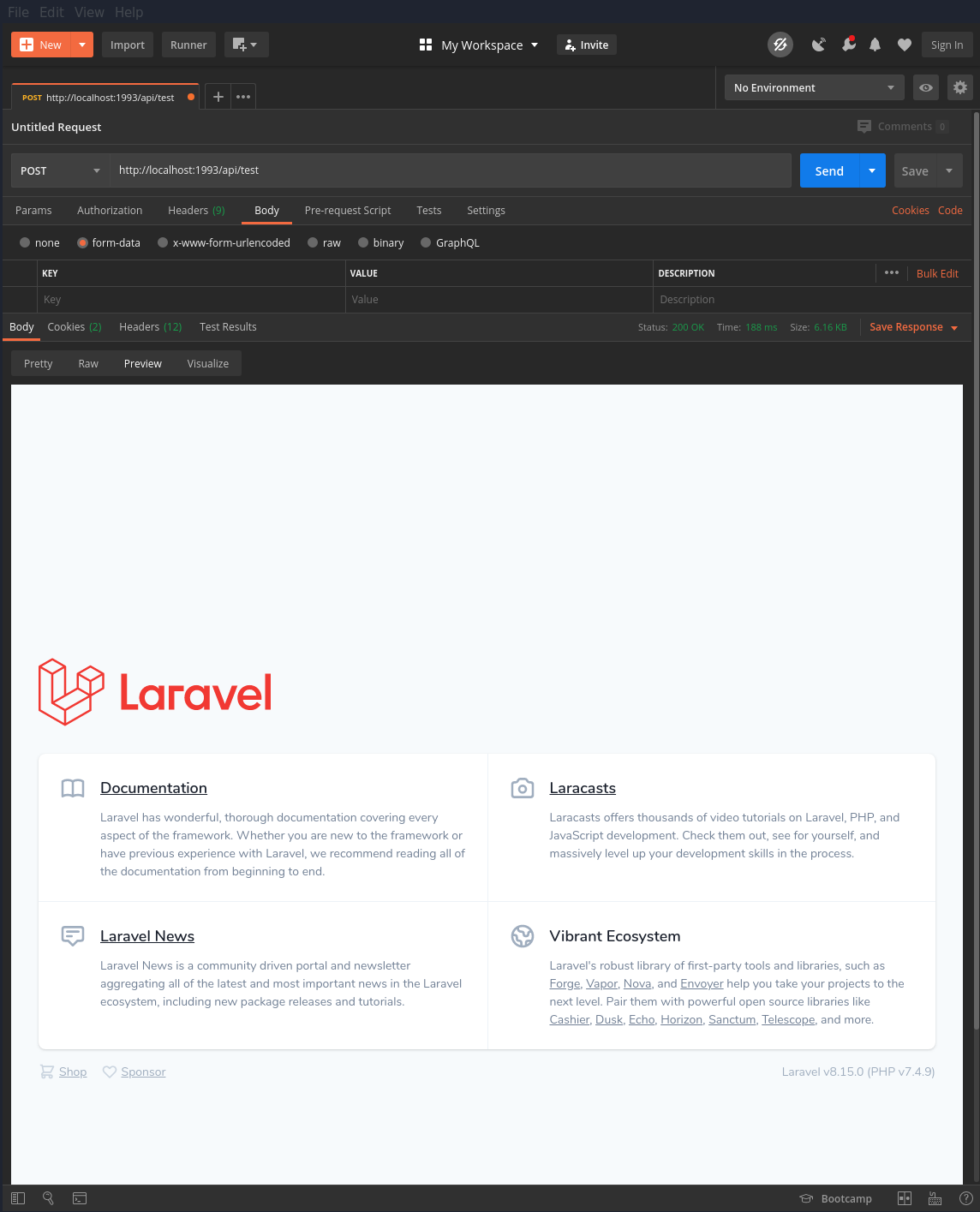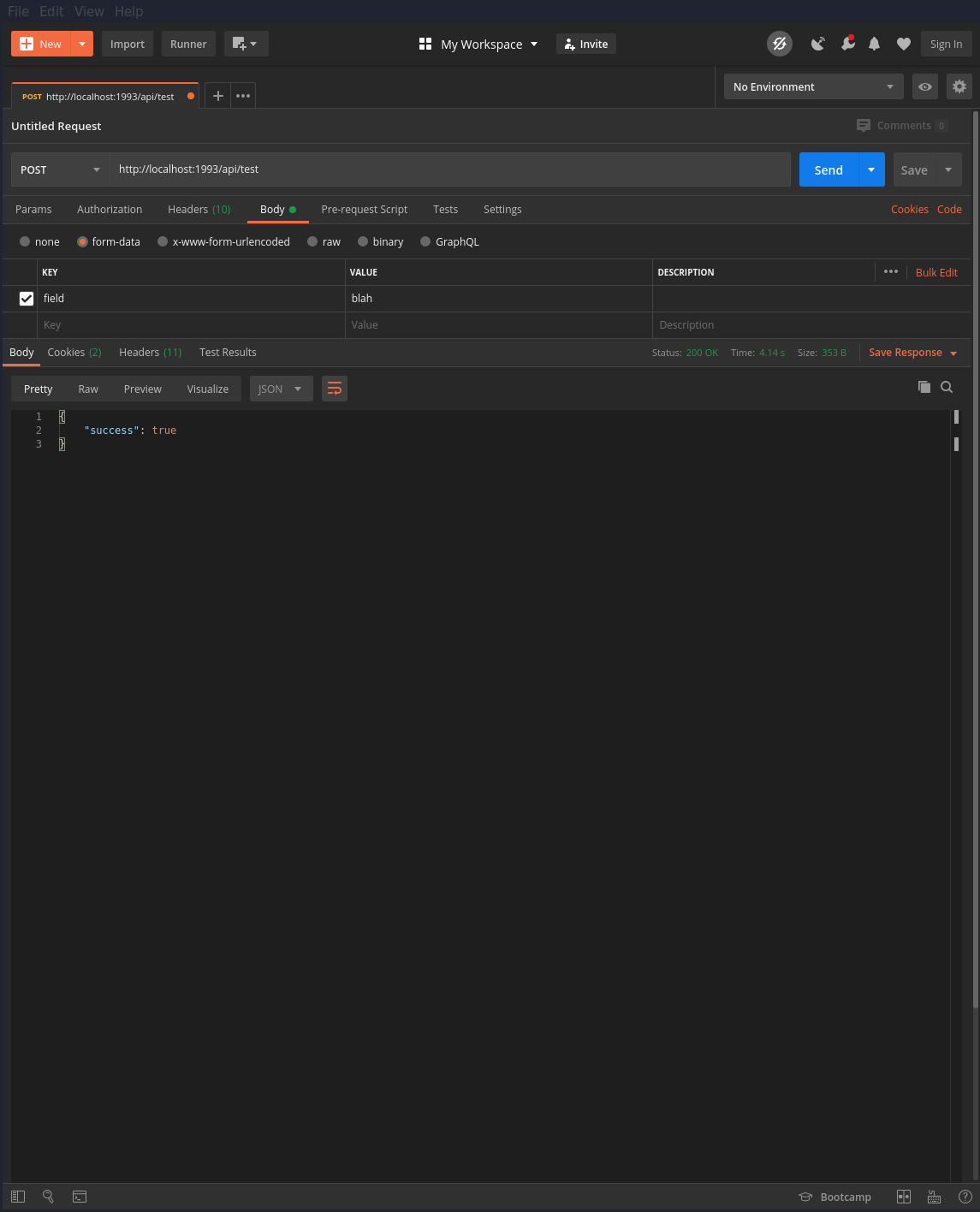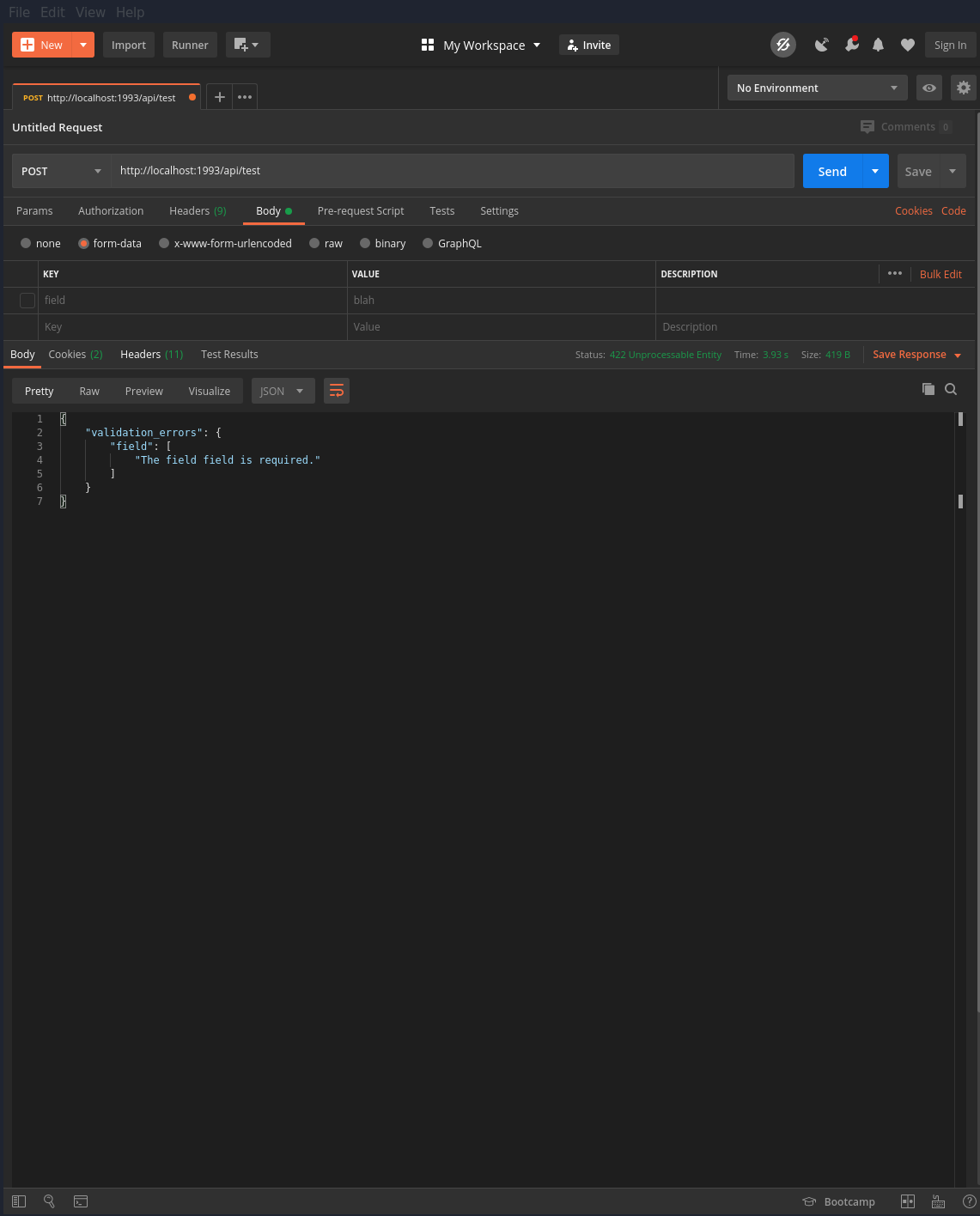Doing validation in the controller kinda sucks! We don’t want fat controllers. One way to stop fat controllers is creating a custom Request, which will store the validation rules, messages, etc.
Altering the way a Request is returned when validation is in a custom Request object might be something you want to consider.
Returning a Response with a redirect url and MessageBag might not be what you want, and can be laborious to change this on a per-controller basis.
A default API call where the validation has failed:

Overriding the failedValidation in a new Request might be what you need to return the validation errors in a standard json format! This post will walk you through this.
Requests
Lets start by making a couple of Requests.
$ php artisan make:request --help
Description:
Create a new form request class
Usage:
make:request <name>
Arguments:
name The name of the class
Options:
-h, --help Display this help message
-q, --quiet Do not output any message
-V, --version Display this application version
--ansi Force ANSI output
--no-ansi Disable ANSI output
-n, --no-interaction Do not ask any interactive question
--env[=ENV] The environment the command should run under
-v|vv|vvv, --verbose Increase the verbosity of messages: 1 for normal output, 2 for more verbose output and 3 for debug
We’ll make a JsonRequest that our new API Requests will extend.
php artisan make:request JsonRequest
app/Http/Requests/JsonRequest.php: We’ll come back to this one later!
<?php
namespace App\Http\Requests;
use Illuminate\Foundation\Http\FormRequest;
class JsonRequest extends FormRequest
{
/**
* Determine if the user is authorized to make this request.
*
* @return bool
*/
public function authorize()
{
return false;
}
/**
* Get the validation rules that apply to the request.
*
* @return array
*/
public function rules()
{
return [
//
];
}
}
Next, we’ll make a new TestRequest which will extend our new JsonRequest, and will add some validation rules.
php artisan make:request Api/TestRequest
app/Http/Requests/Api/TestRequest.php:
<?php
namespace App\Http\Requests\Api;
-use Illuminate\Foundation\Http\FormRequest;
+use App\Http\Requests\JsonRequest;
-class TestRequest extends FormRequest
+class TestRequest extends JsonRequest
{
/**
* Determine if the user is authorized to make this request.
*
* @return bool
*/
public function authorize()
{
- return false;
+ return true;
}
/**
* Get the validation rules that apply to the request.
*
* @return array
*/
public function rules()
{
return [
- //
+ 'field' => ['required'],
];
}
}
Controllers
$ php artisan make:controller --help
Description:
Create a new controller class
Usage:
make:controller [options] [--] <name>
Arguments:
name The name of the class
Options:
--api Exclude the create and edit methods from the controller.
--force Create the class even if the controller already exists
-i, --invokable Generate a single method, invokable controller class.
-m, --model[=MODEL] Generate a resource controller for the given model.
-p, --parent[=PARENT] Generate a nested resource controller class.
-r, --resource Generate a resource controller class.
-h, --help Display this help message
-q, --quiet Do not output any message
-V, --version Display this application version
--ansi Force ANSI output
--no-ansi Disable ANSI output
-n, --no-interaction Do not ask any interactive question
--env[=ENV] The environment the command should run under
-v|vv|vvv, --verbose Increase the verbosity of messages: 1 for normal output, 2 for more verbose output and 3 for debug
php artisan make:controller --api --invokable Api/TestController
I use --invokable because I like single action controllers.
Changing the argument in __invokable to the TestRequest will trigger the validation process. Laravel just takes care of it.
app/Http/Controller/Api/TestController.php:
<?php
namespace App\Http\Controllers\Api;
use App\Http\Controllers\Controller;
-use Illuminate\Http\Request;
+use App\Http\Requests\Api\TestRequest;
class TestController extends Controller
{
/**
* Handle the incoming request.
*
* @param \Illuminate\Http\Request $request
* @return \Illuminate\Http\Response
*/
- public function __invoke(Request $request)
+ public function __invoke(TestRequest $request)
{
+ return response()->json(['success' => true], 200);
}
}
Routes
Just the last line for testing.
routes/api.php:
<?php
use Illuminate\Http\Request;
use Illuminate\Support\Facades\Route;
/*
|--------------------------------------------------------------------------
| API Routes
|--------------------------------------------------------------------------
|
| Here is where you can register API routes for your application. These
| routes are loaded by the RouteServiceProvider within a group which
| is assigned the "api" middleware group. Enjoy building your API!
|
*/
Route::middleware('auth:api')->get('/user', function (Request $request) {
return $request->user();
});
Route::post('test', \App\Http\Controllers\Api\TestController::class);
Testing
Without field param |
With field param |
|---|---|
 |
 |
Nothing has changed, unsurprisingly. The next step will fix that!
Requests Again
Override the failedValidation in app/Http/Requests/JsonRequest.php:
<?php
namespace App\Http\Requests;
use Illuminate\Contracts\Validation\Validator;
use Illuminate\Foundation\Http\FormRequest;
use Illuminate\Http\Response;
use Illuminate\Validation\ValidationException;
class JsonRequest extends FormRequest
{
/**
* Determine if the user is authorized to make this request.
*
* @return bool
*/
public function authorize()
{
return false;
}
/**
* Get the validation rules that apply to the request.
*
* @return array
*/
public function rules()
{
return [
//
];
}
/**
* Handle a failed validation attempt.
*
* @param Validator $validator
* @throws ValidationException
*/
protected function failedValidation(Validator $validator)
{
throw new ValidationException(
$validator,
response()->json(
[
'validation_errors' => $validator->errors()
],
Response::HTTP_UNPROCESSABLE_ENTITY
)
);
}
}
Testing Again
Great success!

Without field param |
With field param |
|---|---|
 |
 |
Ultimately we are overriding a trait in FormRequest, Illuminate/Validation/ValidatesWhenResolvedTrait.php - so have a look in there and see if there’s something else you can think of.